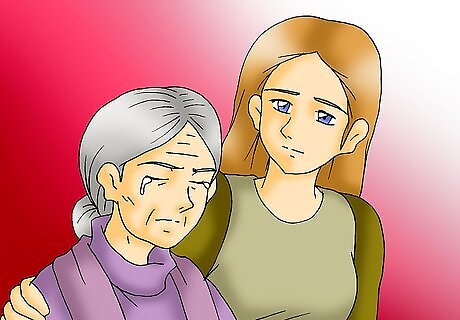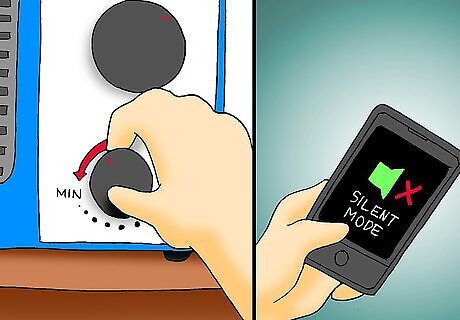
views

Be a companion. Do not let a person die alone. Let them experience love and friendship as they pass. If the person is unresponsive, hold their hand and talk to them.

Offer comfort measures. Contract a hospice nurse to provide pain management. Provide a special mattress to alleviate pressure. Offer water, but do not force hydration. If the person is incontinent, keep them clean and dry.

Share courage. The transition out of this life can be a source of anxiety or fear. Offer a conversation of faith or peace.

Demonstrate dignity and respect. It may seem humiliating to a person when they are incontinent or totally dependent on others for activities of daily living. Tell the person how you admire and respect them.

Review life. Talk about times and occasions in life that were important to the dying person. Talk about humorous incidents. Talk about activities and hobbies that have been rewarding. Talk to family members about what they would consider the significant events of their loved one's life.

Listen. Don't do all the talking. Don't be afraid to sit in silence.

Minister to the family. Bring in meals. Offer time for respite. Promise to be available during bereavement.

Do not impose. Back off of any intervention that makes the dying person uncomfortable. Be thoughtful and considerate.



















Comments
0 comment